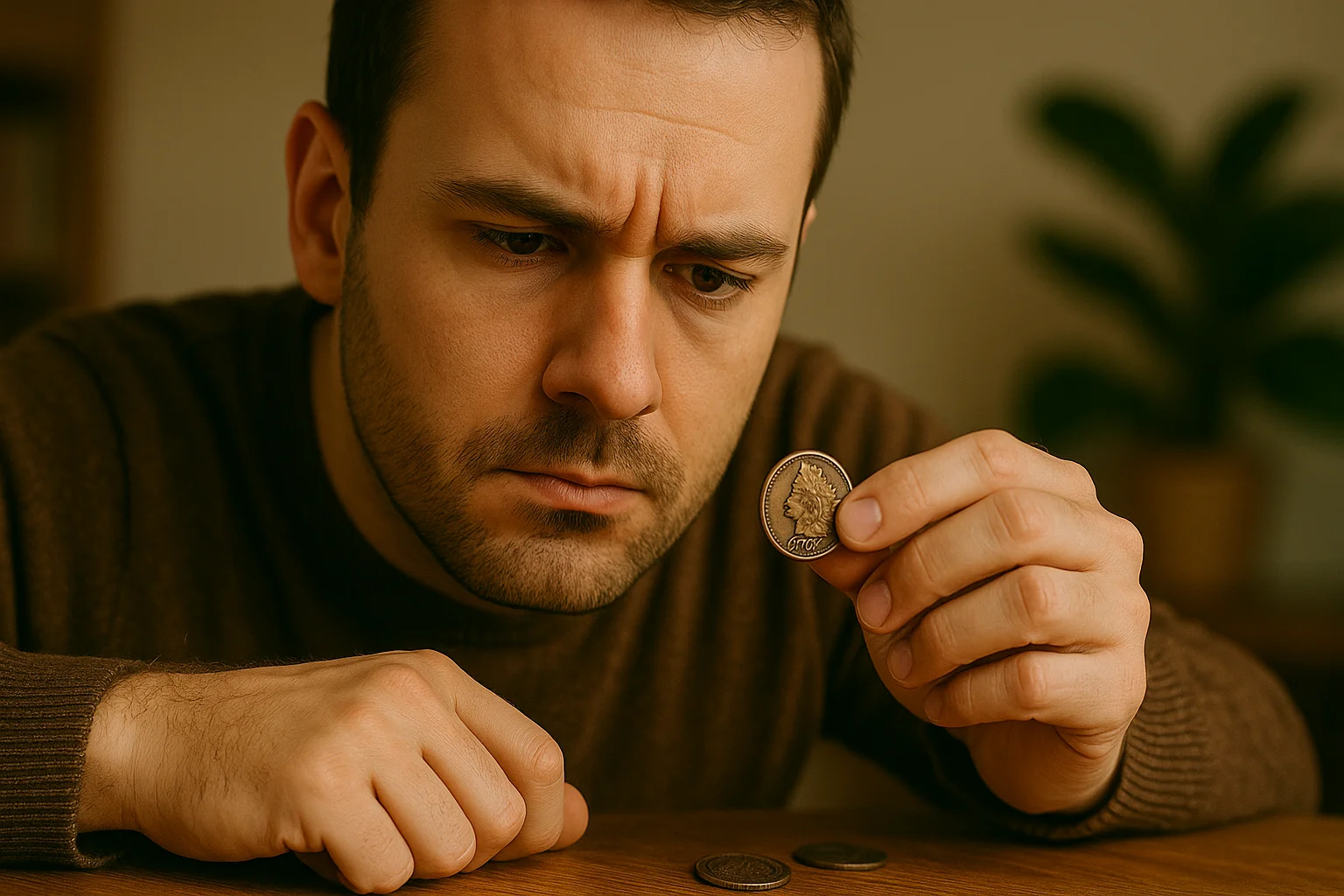Money accompanies us everywhere – at the airport, in hotels, in markets, in temples and even in conversations with strangers. But if you can find out the exchange rate in any application, it is more difficult to understand how money is treated in a particular country. Because money is not just banknotes or coins, but part of culture, a system of beliefs, rituals and even superstitions.
Different parts of the world treat them differently: somewhere believe that you can not give money after sundown, somewhere a certain coin can bring good luck, and elsewhere that the change under the pillow can cause nightmares. These myths sound amazing but they still have their own logic.
Just as in the world of numismatics there is a concept of coin grading scale – a strict system of evaluating coins according to their condition – so in culture there is a “rating scale” for handling money. And it’s no less important, especially if you are traveling. That is why we offer you to discuss some real myths about currency from around the world so you can easily navigate the world of money, especially abroad. Let us start.
Money and Fortune: Beliefs That Bring Luck (or Misfortune)
Money is not just a tool for buying things. In many cultures, it’s linked to emotions, luck, and even spiritual beliefs. And when you’re traveling, understanding how people feel about money can be as important as knowing the local language. So, below you will find some of the world’s most surprising beliefs about money and fortune.
China: Lucky Numbers and Red Envelopes
In China, money often travels in bright red envelopes, especially during holidays and weddings. But the real magic is in the numbers.
- 8 is the luckiest number. It sounds like “wealth” in Chinese.
- 4 is avoided – it is pronounced like “death”.
Lifehack:If you are giving money in China, try to go for amounts like 88 or 888. These numbers are considered incredibly lucky and are believed to bring prosperity and good fortune. However, be cautious and avoid giving amounts like 40 or 444 – even by accident!
By the way, in China, lucky numbers influence many aspects of daily life, and the country even has an entire market dedicated to numerology. For example, a car license plate or a phone number with the number 888 can be so highly sought after that it might actually cost more than the car or phone itself!

India: Why ₹501 Is Better Than ₹500
In India, it’s common to give gift amounts like ₹101, ₹501, or ₹1001. The extra rupee may seem like a small gesture, but it is far from a rounding error. That +1 rupee is a meaningful symbol of ongoing prosperity, growth, and good fortune. It’s believed that the additional rupee improves the blessing and ensures that the recipient’s future will be full of abundance.
Tip for travelers: If you’re gifting an old coin or cash in India, consider scanning it with the Coin ID Scanner app to learn more about its unique features, history, and value. Once you’ve explored its background, be sure to add that extra +1 rupee to your gift. It is seen as wishing the recipient “something extra” and symbolizes a wish for continuous prosperity and growth.
Did you know that in temples throughout India, coins are offered not only to receive divine blessings, but also to symbolically “balance karma”? Presenting a coin, people believe they can level negative karma, creating harmony and attracting positive energy into their lives.
Monetary Taboos: What Not to Do with Money Abroad
Money talks – but in some parts of the world it whispers of superstition. While travelers often pay attention to exchange rates and ATMs, lesser known are the cultural minefields hidden in the everyday exchange of money with locals. Let’s travel to countries where how you handle money matters as deeply as how much of it you have.
Russia and Eastern Europe: Don’t Hand Over Money at Night (Or at the Door)
In Russia and several Eastern European countries, there is a widespread belief that handing over money at night brings misfortune – for both parties. Locals think that nighttime is spiritually vulnerable and makes any financial transaction a potential source of bad luck or even a financial drain.
But it gets even more specific: passing money across a doorstep is considered especially dangerous. The threshold is viewed as a liminal space between the safety of the home and the unpredictability of the outside world. And due to exchanging money there, you are symbolically “cutting” ties or inviting conflict.
Locals often go out of their way to avoid this. You might see someone step outside to receive payment – or insist you come fully inside before accepting cash. It’s not just politeness – it is a protective tradition.
How to avoid financial faux pas in Eastern Europe:
- Never hand over money in a doorway — step inside or outside first.
- Try not to make payments after dark, especially for personal favors.
- When in doubt, place the money on a surface (like a table or counter) instead of passing it hand-to-hand.
- Avoid discussing money matters during nighttime visits or gatherings.
Interesting fact: This belief is tied to older folk traditions, where nighttime was seen as a time when spirits roamed freely. Performing financial exchanges during these hours was thought to “mix” your energy with the unknown, bringing instability or even inviting spiritual debt.
Brazil: Counting Cash? Keep It Private
In Brazil, there’s a strong unspoken rule: never openly count money in public. Taking your time to go through bills (especially in full view) can come across as distrustful, boastful, or just naive. It also makes you stand out, which is never a good idea in busy urban areas or open-air markets.
This custom applies even in casual situations: street vendors, taxi drivers, or shopkeepers will often hand back change quickly, expecting you to accept it with confidence. Double-checking every note at the counter? That can seem like you don’t trust them – or like you’re unfamiliar with how things work.
Lifehack: If you’re unsure about your change, step aside from the counter before double-checking. Want to impress locals? Pay with confidence, not a calculator.
This custom stems from both etiquette and safety – public displays of cash can make tourists easy targets.

Coins in Rituals: Symbolic Uses of Money Around the World
Not all coins are meant for spending. In many cultures, they are symbols of fate, luck, and heritage, tucked into cakes, gifted in ceremonies, or carried for protection. These are not just charming traditions – they reveal how deeply personal our relationship with money can be.
Greece: The Lucky Coin in the Cake
In Greek homes, New Year’s Day begins with a sweet and suspenseful tradition – the cutting of the Vasilopita, a round cake or sweet bread that conceals a coin inside. Each family member receives a slice, and the person who finds the hidden coin is believed to be blessed with good fortune, health, and success for the entire year.
But this is more than just a culinary game, as the Vasilopita tradition honors Saint Basil the Great, a fourth-century bishop known for his kindness to the poor. Legend has it that he once returned wealth to townspeople by baking coins into loaves of bread – a gesture echoed each January 1st in Greek homes around the world.
Visiting Greece during the holidays? Keep this in mind:
- If you are offered a slice of Vasilopita, accept it warmly – it’s a sign of hospitality and shared blessings.
- Eat slowly and mindfully – no one wants to be the one who swallows their luck!
- If you find the coin, don’t forget to smile – you might just be the family’s lucky charm for the year.
Interesting fact: In many households, the first slices are ceremonially cut for Jesus Christ, the Virgin Mary, and the household itself – before any people are served. It is a touching blend of faith, tradition, and community spirit that turns a simple dessert into something magical.
USA: The “Lucky Penny” Phenomenon
“Find a penny, pick it up, all day long you’ll have good luck.” But not just any penny will do – it has to be face-up, showing Abraham Lincoln’s solemn profile. If it’s tails-up, some believe the luck is reversed, or that you should turn it over for the next person to find.
This tiny token of luck is often passed along intentionally. Parents tuck them into backpacks before tests, travelers keep them in their pockets for safe journeys, and some even glue them under chairs or dashboards – little hidden blessings in copper form.
Interesting fact: Lincoln, a symbol of resilience and wisdom, gives the penny its special cultural resonance. Despite its low monetary value, the penny has taken on a symbolic richness, connected to everyday hopes, childhood traditions, and the quiet belief that luck can be found in unexpected places.
The World Speaks the Language of Money
Money behaves differently in every country: somewhere it brings good luck, somewhere it demands respect, and somewhere it is better not to count it in public. Thus, when traveling, don’t forget that coins and bills hold both value and character. And if you listen, they will tell much more than just the price. And sometimes a coin left in a pie or a banknote given with a good intention says more about you than a thousand words.



